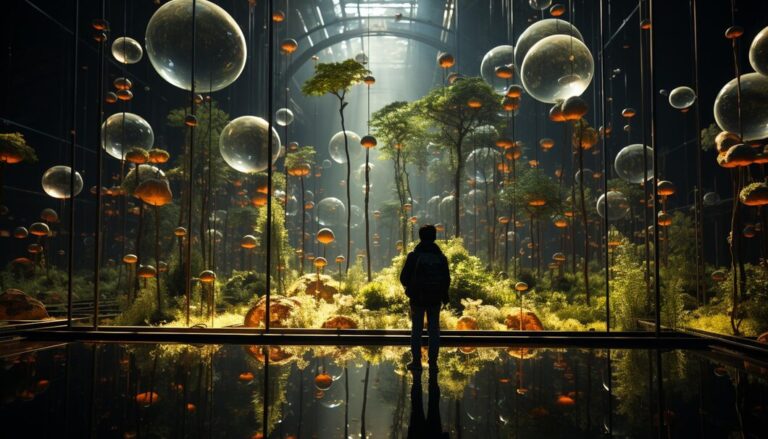Biocentrisms is a philosophical perspective that places living organisms at the center of the universe, attributing a fundamental role to consciousness in the creation and functioning of reality. Proponents of biocentrism argue that the universe is not a separate entity from living beings but rather exists because of them. However, despite its growing popularity, biocentrism has faced criticism and skepticism from various quarters. In this article, we will delve into the concept of biocentrism, examine its key tenets, and explore the arguments against it.
Understanding Biocentrism
Biocentrism, as formulated by scientist Robert Lanza in his book “Biocentrism: How Life and Consciousness Are the Keys to Understanding the True Nature of the Universe,” posits that life and consciousness are central to the existence and structure of the universe. According to biocentrism, the universe is not a mere collection of inert matter governed by impersonal physical laws but is instead imbued with life and consciousness.
One of the central principles of biocentrism is the idea that consciousness creates reality. In other words, the universe exists because conscious beings perceive it. This notion challenges the traditional view of reality as something objective and independent of observers. Instead, biocentrism suggests that reality is subjective and depends on the observer’s consciousness.
Another key aspect of biocentrism is the concept of “the observer effect.” This idea, borrowed from quantum physics, proposes that the act of observation influences the behavior of subatomic particles. Biocentrism extends this principle to the macroscopic world, suggesting that observation plays a crucial role in shaping the entire universe.
Proponents of biocentrism argue that their perspective offers a more holistic and intuitive understanding of reality than traditional scientific paradigms. They point to various phenomena, such as the fine-tuning of the universe for life, the mysterious nature of consciousness, and the limitations of materialist explanations, as evidence supporting biocentrism.
Debunking Biocentrism: The Criticisms
While biocentrisms has gained a following among some thinkers and laypeople, it has also faced significant criticism from skeptics and scientists. Critics argue that biocentrism lacks empirical evidence, contradicts well-established scientific principles, and relies on flawed reasoning. Below, we will examine some of the main criticisms leveled against biocentrism.
Lack of Empirical Evidence
One of the primary criticisms of biocentrisms is its lack of empirical evidence. While proponents of biocentrism often appeal to philosophical arguments and thought experiments, they have not presented empirical data to support their claims. The idea that consciousness creates reality remains speculative and unverified by scientific observation or experimentation.
Critics argue that without empirical evidence, biocentrism cannot be considered a scientific theory but rather a philosophical speculation or belief system. Science relies on empirical observation, experimentation, and verification to establish the validity of theories. Without such evidence, biocentrism remains outside the realm of scientific inquiry.
Misinterpretation of Quantum Physics
Biocentrisms draws heavily on concepts from quantum physics, such as the observer effect, to support its claims. However, critics argue that biocentrism misunderstands or misinterprets these concepts. While quantum physics does indeed challenge some aspects of classical determinism and objectivity, it does not support the idea that consciousness creates reality in the way that biocentrisms suggests.
The observer effect, for example, refers to the influence of measurement or observation on the behavior of quantum systems. It does not imply that consciousness plays a fundamental role in creating reality but rather that observation disturbs the system being observed. Quantum phenomena are complex and often counterintuitive, but they do not require the presence of conscious observers to occur.
Anthropocentric Bias
Another criticism of biocentrisms is its anthropocentric bias—the tendency to privilege human consciousness and life over other forms of existence. While biocentrism claims to place all living organisms at the center of the universe, critics argue that it still prioritizes human experience and perspective.
Furthermore, biocentrism fails to account for the vastness and diversity of the universe, which includes many non-living entities such as stars, planets, and galaxies. By focusing solely on life and consciousness, biocentrism neglects the physical processes and structures that make up the majority of the cosmos.
Logical Fallacies
Critics of biocentrism also point to logical fallacies in its reasoning. For example, the idea that consciousness creates reality raises questions about the nature of reality before the existence of conscious beings. If reality depends on consciousness, how did the universe come into being in the first place? Biocentrism struggles to provide satisfactory answers to such fundamental questions.
Additionally, biocentrism tends to conflate correlation with causation. While it is true that consciousness correlates with our perception of reality, it does not necessarily follow that consciousness is the cause of reality. Correlation does not imply causation, and biocentrism fails to establish a causal relationship between consciousness and the existence of the universe.
Conclusion
While biocentrism offers an intriguing and thought-provoking perspective on the nature of reality, it faces significant challenges and criticisms. Critics argue that biocentrism lacks empirical evidence, misinterprets scientific principles, exhibits anthropocentric bias, and relies on flawed reasoning.
While it is essential to remain open to new ideas and perspectives, including those outside the mainstream scientific consensus, biocentrism has yet to establish itself as a credible scientific theory. Without empirical evidence and logical coherence, biocentrism remains a speculative hypothesis rather than a scientifically supported framework for understanding the universe. As such, it is crucial to approach biocentrism with skepticism and critical scrutiny while remaining open to the possibility of future research and discovery.

